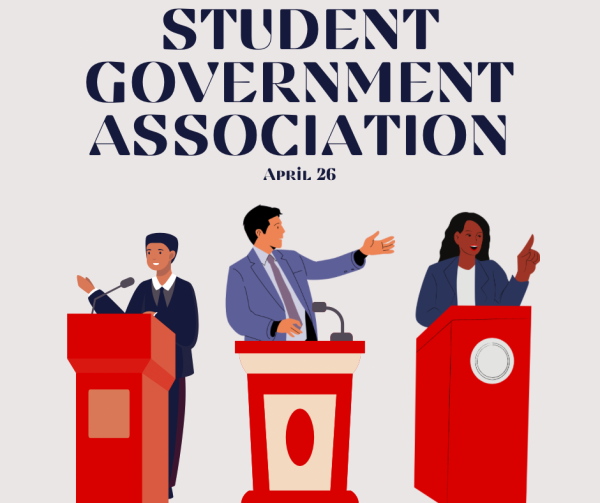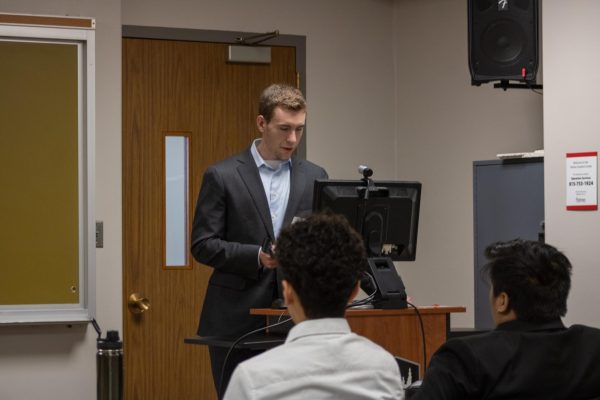Early savings lead to more secure retirement
December 2, 2004
Retirement is often pictured as a time of relaxation – a time to sit back and admire the payoff of life’s hard work.
But if money is not properly invested, there will be no payoff in these golden years.
“The sooner you invest, the better,” said James Johnson, associate professor of finance.
Johnson said that if students invested just $200 every month starting at age 22, they would have $1,264,815 by age 62. Their monthly pension until age 82 would be $12,206.
“I haven’t invested anything, but it is a good idea,” said Corinne Goben, a junior business management major. “I’m sure there are few students that actually think about it.”
Dave Kelley, a senior business management major, said he often thinks about retirement. Kelley said he has read about some types of retirement plans, such as a Roth IRA.
“The key is time, because obviously [the money] compounds over the years,” he said.
Investing in retirement starts with a student’s first job out of college, Johnson said.
There are many different plans, such as an IRA or 401(k). People are able to contribute to an IRA, or Individual Retirement Arrangements, even if they have other retirement plans. 401 (k)s allow employees to have the employer contribute part of the employee’s cash wages to a retirement plan before they are taxed.
“The No. 1 thing is to start putting money aside in a pension fund or other retirement vehicle where you’re able to defer the taxes until you start drawing out,” Johnson said. “Invest in something that’s going to defer the taxes.”
There is a possibility that Social Security will not be around when the current generation grows old, Johnson said.
“Social Security started in the ’30s while everyone was in the poorhouse,” he said. “FDR said, ‘We don’t have time to fund this, people need money now.’”
Johnson said as long as there is a large amount of people’s taxes going into Social Security and a small amount of people drawing out of it, the plan works.
Pat Schorn, a 42-year-old student, has already gone through the process of selecting a retirement plan and has some advice for younger students.
“If there are 401(k) opportunities through your company, take advantage of them for the maximum opportunity you can,” Schorn said.
Johnson said the biggest mistake young people make is telling themselves, “I’ll start saving when I’ve paid off my bills.”
“If you do that, you’ll never save a dime because you’ll always find a happy home for the money,” Johnson said.













